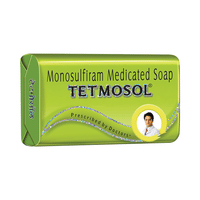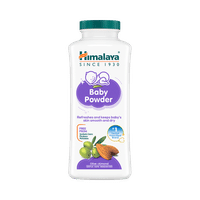Rs.86.20for 1 tube(s) (10 gm Cream each)
यह अनेक प्रकरों में भी उपलब्ध है
Bactirest क्रीम के लिए भोजन प्रभाव
Bactirest क्रीम के लिए शराब प्रभाव
Bactirest क्रीम के लिए गर्भावस्था प्रभाव
Bactirest क्रीम के लिए स्तनपान प्रभाव
Bactirest क्रीम के लिए मेडिसिन प्रभाव
भोजन
शराब
गर्भावस्था
स्तनपान
मेडिसिन
No interaction found/established
No interaction found/established
गर्भावस्था के दौरान Bactirest Cream का इस्तेमाल करना संभवतः सुरक्षित है।
जानवरों पर किए गए अध्ययनों से पता चला है कि इसका गर्भ में पल रहे शिशु पर कोई बुरा असर नहीं पड़ता है। हालांकि, इस विषय पर सीमित मानव अध्ययन किए गए हैं। कृपया अपने डॉक्टर की सलाह लें।
जानवरों पर किए गए अध्ययनों से पता चला है कि इसका गर्भ में पल रहे शिशु पर कोई बुरा असर नहीं पड़ता है। हालांकि, इस विषय पर सीमित मानव अध्ययन किए गए हैं। कृपया अपने डॉक्टर की सलाह लें।
SAFE IF PRESCRIBED
स्तनपान के दौरान Bactirest Cream का इस्तेमाल करना संभवतः असुरक्षित है। इस विषय पर इंसानों या जानवरों पर किए गए अध्ययन उपलब्ध नहीं हैं।
CONSULT YOUR DOCTOR
No interaction found/established
Bactirest 2% w/w क्रीम की लवण सम्बन्धी जानकारी
Fusidic Acid(2% w/w)
Bactirest क्रीम का उपयोग
Bactirest Cream का इस्तेमाल त्वचा पर बैक्टीरिया से होने वाला संक्रमण में किया जाता है
Bactirest क्रीम कैसे काम करता है
फुसिडिक एसिड और उसके लवण, नैरो-स्पेक्ट्रम एंटीबायोटिक हैं। यह प्रोटीन के उत्पादन को अवरुद्ध कर देता है जो बैक्टीरिया के विकास के लिए महत्वपूर्ण है जिसके परिणामस्वरूप बैक्टीरिया की मौत हो जाती है।
Bactirest क्रीम के सामान्य दुष्प्रभाव
इस्तेमाल वाली जगह पर रिएक्शन
Bactirest क्रीम का विकल्प
143 विकल्प
143 विकल्प
Sorted By
 Rs. 52.48pay 16% more per gm of Cream
Rs. 52.48pay 16% more per gm of Cream Rs. 51.61pay 13% more per gm of Cream
Rs. 51.61pay 13% more per gm of Cream Rs. 51.60pay 13% more per gm of Cream
Rs. 51.60pay 13% more per gm of Cream Rs. 102.70pay 13% more per gm of Cream
Rs. 102.70pay 13% more per gm of Cream Rs. 105pay 15% more per gm of Cream
Rs. 105pay 15% more per gm of Cream
Bactirest 2% w/w क्रीम के लिए अक्सर पूछे जाने वाले सवाल
Fusidic Acid
Q. Is Bactirest Cream an antifungal or a steroid? What is it used for?
Bactirest Cream is neither an antifungal nor a steroid. It is an antibiotic that is effective against bacteria. It is used to treat bacterial infections of the skin, like impetigo, infected cuts and grazes, and infected dermatitis (skin becomes red, slightly swollen, and painful due to infection).
Q. For how long is it required to use Bactirest Cream?
Use the Bactirest Cream for the time your doctor advises. The treatment with Bactirest Cream usually stretches for 1-2 weeks, although it can be longer in some cases.
Q. What precautions should I take while applying Bactirest Cream?
Bactirest Cream is meant to be applied only to the skin. Always wash your hands before applying the medicine. Unless you are using the cream to treat your hands, always wash your hands after using Bactirest Cream. Do not insert it into your body or swallow it. If it accidentally enters your eyes, wash your eyes thoroughly with water. If irritation persists, contact your doctor immediately.






















